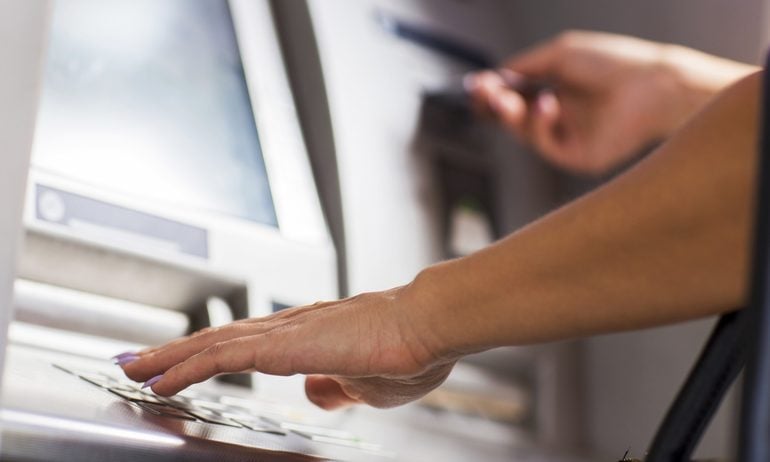How to Avoid ATM Fees
You can avoid ATM fees by getting cash back at a retailer or choosing an account with fee rebates.

Many, or all, of the products featured on this page are from our advertising partners who compensate us when you take certain actions on our website or click to take an action on their website. However, this does not influence our evaluations. Our opinions are our own. Here is a list of our partners and here's how we make money.
Despite the increase in electronic payment options, cash still has a place in present-day finances. When withdrawing cash, there’s a chance that you may have to pay an out-of-network ATM fee — often $2 or more — on top of whatever the ATM owner charges. These fees can add up over time and be quite expensive in the long run.
Here are four ways to avoid ATM fees.
» MORE: Best banks with no ATM fees
1. See if cards or digital wallets are accepted
If you are going to a restaurant, merchant or government office, call ahead or check its website to see what forms of payment the business accepts. For events such as county fairs or concerts, you generally can find out ahead of time whether credit cards or digital wallets are accepted, in which case you can avoid using cash altogether.
If you’re trying to send money to a friend or family member, you can consider using a peer-to-peer payment app to avoid cash as well.
2. Find an ATM in your bank's network
When cash is the only option, use your phone to see how close you are to an ATM in your bank's network. Most banks and credit unions offer a free ATM network, whether it’s their own brand or a shared network such as Allpoint, MoneyPass or Co-op. You can generally find the in-network ATM closest to you by using an ATM locator on your financial institution’s mobile app or through a web search.
3. Get cash back at a store checkout counter
If you aren’t near one of your bank’s ATMs, look for a grocery store, gas station or big retailer. Many of these offer no-fee cash back as a part of your purchase when you use a debit card or prepaid debit card at checkout. When you're asked "debit or credit," select "debit" to get cash back. You'll also need to enter your four-digit personal identification number (PIN).
4. Choose a bank or credit union that reimburses ATM fees or has a larger network
If your ATM fees — combined with other fees your bank charges — are hurting your wallet, it might be time to consider a new bank. Some online banks and community financial institutions refund ATM fees — either an unlimited amount or up to $10 or more per month. Try out this checking account comparison tool and sort by out-of-network ATM fees to see which banks offer such refunds.
Alternatively, you may need a bank or credit union with more ATMs, especially in your area. If you travel frequently, consider banks that don’t have foreign ATM or debit card transaction fees.





